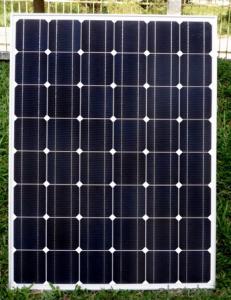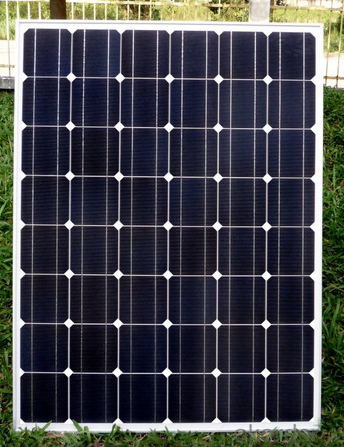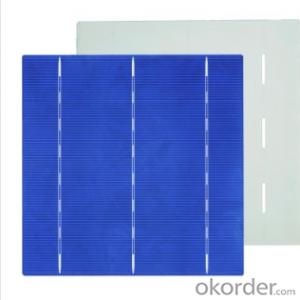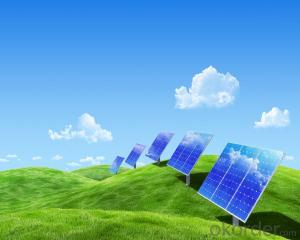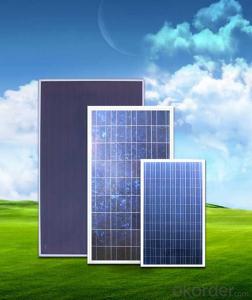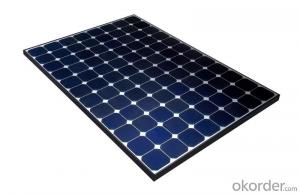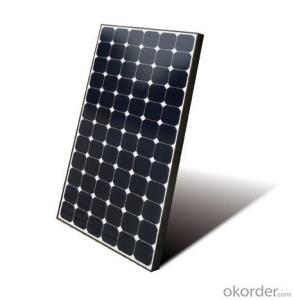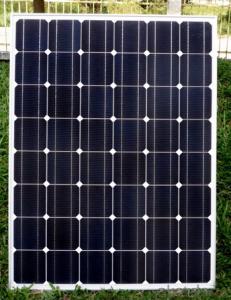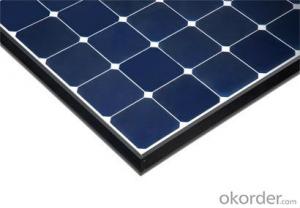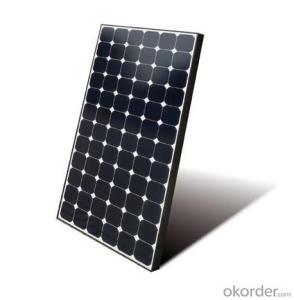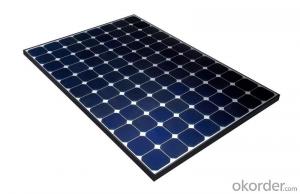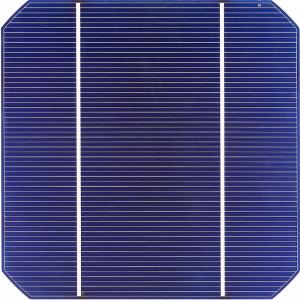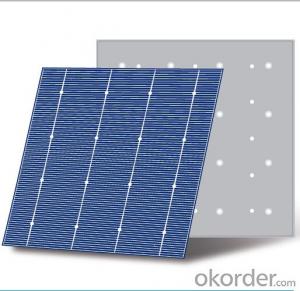Bulk Solar Cells - Poly Solar Panel 70w A Grade with 12 Years Warranty
- Loading Port:
- Shanghai
- Payment Terms:
- TT OR LC
- Min Order Qty:
- 100 watt
- Supply Capability:
- 1000 watt/month
OKorder Service Pledge
OKorder Financial Service
You Might Also Like
Specification
Poly Solar Panel 70W A Grade with 12 Years Warranty
Production description
Solar power is the conversion of sunlight into electricity, either directly usingphotovoltaics (PV), or indirectly using concentrated solar power (CSP). Concentrated solar power systems use lenses or mirrors and tracking systems to focus a large area of sunlight into a small beam. Photovoltaics convert light into an electric currentusing the photovoltaic effect.[1]
The International Energy Agency projected in 2014 that under its "high renewables" scenario, by 2050, solar photovoltaics and concentrated solar power would contribute about 16 and 11 percent, respectively, of the worldwide electricity consumption, and solar would be the world's largest source of electricity. Most solar installations would be in China and India.[2]
photovoltaic system, also solar PV power system, or PV system, is a power system designed to supply usable solar power by means of photovoltaics. It consists of an arrangement of several components, includingsolar panels to absorb and convert sunlight into electricity, a solar inverter to change the electric current from DC to AC, as well as mounting, cabling and other electrical accessories to set up a working system. It may also use a solar tracking system to improve the system's overall performance and include an integrated battery solution, as prices for storage devices are expected to decline. Strictly speaking, a solar arrayonly encompasses the ensemble of solar panels, the visible part of the PV system, and does not include all the other hardware, often summarized as balance of system (BOS). Moreover, PV systems convert light directly into electricity and shouldn't be confused with other technologies, such as concentrated solar power or solar thermal, used for heating and cooling.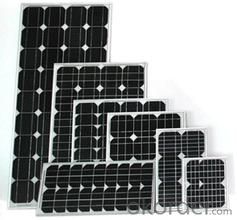
Application
Commercial
Industrial
Residential
Product Feature
12 years quality warranty 25 years performance output.
Free for less than 5 pcs sample requirement
Free to replace or repair or refund if products fail to conform to the PI requirement.
Packaging
28pcs into carton 2carton into pallets 28pallets into a 40ft container
Delivery
After 25 days for manufacturered goods as soon as we received full payment.
After 10 days for stock goods as soon as we received full payment.
- Q: How do solar cells impact greenhouse gas emissions?
- Solar cells have a significant positive impact on greenhouse gas emissions as they generate electricity without producing any greenhouse gases. The use of solar energy reduces our reliance on fossil fuels, which are major contributors to greenhouse gas emissions, thereby helping to mitigate climate change.
- Q: Can solar cells be used for powering universities?
- Yes, solar cells can definitely be used for powering universities. Solar energy is a reliable and sustainable source of power that can be harnessed through solar cells or panels. By installing solar panels on university buildings or campuses, universities can generate clean electricity, reduce their carbon footprint, and potentially save on energy costs in the long run.
- Q: Are solar cells impacted by shading?
- Yes, solar cells are significantly impacted by shading. Even a small amount of shading, such as from trees or buildings, can drastically reduce the efficiency and output of a solar cell. Shading causes certain parts of the cell to receive less sunlight, resulting in decreased energy production. Therefore, it is important to install solar panels in areas with maximum sunlight exposure to optimize their performance.
- Q: Can solar cells be used to power street lights?
- Yes, solar cells can be used to power street lights. Solar panels can convert sunlight into electricity, which can then be stored in batteries and used to power street lights during the night. This provides a sustainable and environmentally friendly solution for street lighting.
- Q: Can solar cells be used for disaster relief efforts?
- Yes, solar cells can be effectively used for disaster relief efforts. Solar cells provide a reliable and sustainable source of energy, which is crucial during emergencies when conventional power sources may be disrupted or unavailable. Solar cells can power essential devices such as lighting, communication equipment, and medical devices in disaster-stricken areas, improving response and recovery operations. Moreover, solar-powered systems can be quickly deployed and are cost-effective in the long run, making them an ideal solution for disaster relief efforts.
- Q: What happens to excess electricity generated by solar cells?
- Excess electricity generated by solar cells can be stored in batteries for later use or can be fed back into the grid, allowing others to benefit from the surplus energy.
- Q: How do solar cells impact local economies?
- Solar cells can have a positive impact on local economies in several ways. Firstly, the installation and maintenance of solar energy systems create job opportunities, contributing to local employment rates. Additionally, solar energy reduces the dependence on fossil fuels, which can lead to a decrease in energy costs for businesses and households, thereby stimulating economic growth. Moreover, the use of solar cells promotes energy independence, reducing the need for importing energy and keeping money within the local economy. Overall, solar cells can foster job creation, cost savings, and energy autonomy, all of which contribute to a stronger and more sustainable local economy.
- Q: Can solar cells be used in off-grid water desalination?
- Yes, solar cells can be used in off-grid water desalination. Solar energy can power the desalination process, typically through a combination of solar panels and a renewable energy storage system. This allows for the conversion of saltwater into fresh water without the need for a connection to the electrical grid. The energy from the sun is harnessed, stored, and utilized to run the desalination equipment, making it a sustainable and environmentally friendly solution for off-grid water desalination.
- Q: Where can I get the most accurate information about solar cells?
- A authorized science book talking about solar cells could be a good reference.
- Q: Can solar cells be used in parking lots?
- Yes, solar cells can certainly be used in parking lots. Solar panels can be installed on carports or overhead structures in parking lots to capture solar energy and convert it into electricity. This can help provide power to the lighting systems, electric vehicle charging stations, and other electrical needs in the parking lot, while also reducing the reliance on traditional grid electricity and decreasing carbon emissions.
Send your message to us
Bulk Solar Cells - Poly Solar Panel 70w A Grade with 12 Years Warranty
- Loading Port:
- Shanghai
- Payment Terms:
- TT OR LC
- Min Order Qty:
- 100 watt
- Supply Capability:
- 1000 watt/month
OKorder Service Pledge
OKorder Financial Service
Similar products
Hot products
Hot Searches
Related keywords
